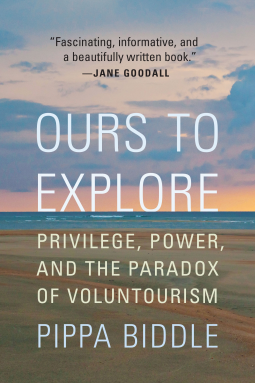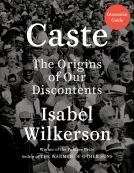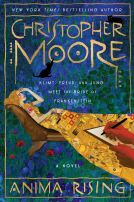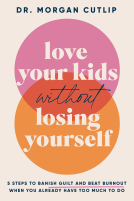
Ours to Explore
Privilege, Power, and the Paradox of Voluntourism
by Pippa Biddle
This title was previously available on NetGalley and is now archived.
Send NetGalley books directly to your Kindle or Kindle app
1
To read on a Kindle or Kindle app, please add kindle@netgalley.com as an approved email address to receive files in your Amazon account. Click here for step-by-step instructions.
2
Also find your Kindle email address within your Amazon account, and enter it here.
Pub Date Jun 01 2021 | Archive Date Jun 30 2021
University of Nebraska Press | Potomac Books
Talking about this book? Use #OurstoExplore #NetGalley. More hashtag tips!
Description
The flaws of voluntourism have included xenophobia, racism, paternalism, and a “West knows best” mentality. From exploitative orphanages that keep children in squalid conditions to attract donors to undertrained medical volunteers practicing their skills on patients in developing regions and to those looking for an inspiring selfie, Biddle reveals the hidden costs of the voluntourism complex. Along the way, readers meet inspiring activists and passionate community members, as well as thoughtful former voluntourists who still work to make a difference—just differently.
Ours to Explore offers a plan for how the service-based travel industry can break the cycle of exploitation and suggests strategies for travelers who want to improve the places they visit for the long haul.
Advance Praise
“Fascinating, informative, and a beautifully written book. . . . We learn something of the unscrupulous exploitation of young people by some of the eco-companies in the volunteer industry today. It offers really good advice to young people wanting to volunteer but uncertain how to go about it.”—Jane Goodall, founder of the Jane Goodall Institute and UN Messenger of Peace
“When you know better, you do better—and this book makes us all better in how we navigate the world.”—Tammy Tibbetts, coauthor of Impact: A Step-by-Step Plan to Create the World You Want to Live In
“Pippa Biddle courageously shows that voluntourism may not be what it seems. Ours to Explore is a powerful read for anyone who wants to change the world away from home.”—Alex Banayan, author of the international best seller The Third Door
Available Editions
| EDITION | Other Format |
| ISBN | 9781640124417 |
| PRICE | $24.95 (USD) |
| PAGES | 272 |
Featured Reviews
 Reviewer 780448
Reviewer 780448
This book was an insightful investigation into voluntourism and its many drawbacks. It illustrates how good intentions can go astray and harm more than help. I applaud the author’s research into this important topic.
The writing style could be a bit too casual at times, especially toward the end of the book, where it seemed that the sentence structure was more haphazard. There was also a distracting use of of the term "clout," which is a pet peeve of mind for the proclivity of Gen Z to overuse and other words would be more impactful.
Overall, I enjoyed this read and coverage of the topic.
 JANE M, Educator
JANE M, Educator
I am extremely grateful to NetGalley for the opportunity to review this book before its publication. I can't wait to to gift this book as soon as it is published and talk with others with whom I have volunteered. I have so many questions for my colleagues and for the group that sponsored my trips.
I can't recommend the book highly enough for anyone who has volunteered or plans to volunteer in the future. I was shocked at much of what I read. I had no idea what may have been going on "behind the scenes or after I left." I have volunteered twice - once in China for 2 weeks and once in Cuba for 2 weeks. I want to believe that what I did when I was there had a positive impact but now I am not so sure. This book has opened my eyes to new ways to look at voluntourism. It has shown me different perspectives to consider before booking another trip. If you are planning a volunteering trip, in order to give back, be sure to read this book first. A company well known in the travel industry has a slogan - "Don't leave home without it!" In this case I encourage you to not book a trip without reading "Ours to Explore". You will be glad you did.
Ours to Explore: Privilege, Power, and the Paradox of Voluntourism
This book is an excellent exploration into the world of "volunteerism," the term that applies to the business of volunteering plus tourism. I had no idea that it was a for-profit business, but so much of it makes sense now. Biddle does a good job of balancing anecdotes and statistics to explain this ever-evolving enterprise. The stories are both interesting and informative, and I feel like I've learned so much from this book. The chapters referencing the "Other" and the "white savior complex" are very academic in nature. As someone who teaches these concepts in the classroom at the college level, I think this book would be perfect in explaining these definitions to a broader audience. I will definitely be buying this book to use as a reference when I explore these the topics with my students.
 catherine h, Reviewer
catherine h, Reviewer
OMG! When will it end? I can think of several people who have done this (teen and adult) and questioned them about everything from how they sought funds to sponsor them on their trips (everything from a week to a summer), to what exactly they did (sounds sort of like a roughing it vacation in some exotic locale when they "helped " indigenous people, while trying to make new friends with other tourists, while interacting with the local folks as big brothers and sisters and just observing them, or trying to "help them by aiding them set up markets for their goods in more prosperous countries (I won't name names, but the natives give you their crafts or foods, you bring them back and sell them state side,then use a good share of those sales to finance your next trip to South American country, or African country for a month. Ans you give the local crafter a small percentage of the sales. Then repeat. Nice vacation.) As bad as Begpackers. Thank you for writing the book Pippa! It needs to be read by many. Congregations need to listen up! It's a total sham and should not be allowed. Do not contribute to this practice! It's right up there with missionary work.
 Alyssa M, Reviewer
Alyssa M, Reviewer
I received a copy of this book throught NetGalley in exchange for an honest review.
This is a fascinating book!
Biddle takes us through the history of voluntourism and it's global impacts. Biddle highlights her own experience with voluntourism and how her group did not do actual work to make an impact. This book talks about the colonial history of voluntourism and how it plays into white supremacy and even Christian privilege that continues today. We read stories and studies about how unqualified volunteers slow and hurt real effects and slow development and growth and how damaging having unqualified workers with children for short periods of time is detrimental.
It's a thoughtful and interesting read.
 Reviewer 818582
Reviewer 818582
This work is focused on the impacts (or lack thereof), social and economic reasons surrounding volunteer tourism , or "voluntourism".
This work was a refreshing and rather eye-opening look into what drives people to take voluntourism trips, and how the entire industry of "feel good, do good" vacations helps to reinforce a model that ultimately doesn't live up to the hype of making positive impacts in the communities where these trips head to.
The book covers the history of travelling to make positive societal impacts in other countries; how the evolution of volunteer tourism came about; what the impact of religious and evangelical groups have had on the industry, and the pitfalls of how the trips and their works are conducted. This work doesn't shy away from discussing some of the controversies around white privilege, perception versus actual impact, and the economic costs these trips have on their destinations.
Some recommendations on how to improve this industry are made (the biggest one is "no more voluntourism in its current form").
This book is recommended for those who have read "The Sum of Us", "Mediocre" and "This book is overdue! : how librarians and cybrarians can save us all".
The premise of this book is very good. It does convey a lot if information people need to think about. When I started it, I felt like it read like an academic paper or a textbook, and later found out it started as an essay, which makes sense. But as it went on, my only key issue is that while very in depth of adding some long history of tourism, and examples of bad projects and organizations, it doesn't really do justice to those organizations that do help and create positive change, or how you can really help, as you're not going to stop people from travelling or wanting to help. And I know that's hard, as the answer is not always the same.
As context, I have volunteered abroad for Raleigh International. And while not featured as any issue here - she has one paragraph about how conservation projects are generally well run, there were definitely young people who weren't fully on board to actually take on the work. Some of them were pretty spoiled and didn't quite understand, as one girl while we were living in a village on top of a mountain in Nicaragua, without electricity, complained to her family she needed more salads to eat. This when we were generally given plantains, rice and beans with some eggs for breakfast and they killed a chicken a couple times a week and a couple times a week we got tomatoes and cucumbers. But we had to explain why they couldn't provide us fresh vegetables constantly, given the land was not good for growing them there and the distance to any stores. Anyway, despite some people like that, I did believe that at least everyone had learned something, some far more than others. And some contributed far more than others. And I do believe the projects I worked on were well organized with the local communities, bringing in people to learn how it works and take on the responsibility of maintaining them after we left. The key thing is the need for people who want to do a sort of 'voluntourism' trip to educate themselves on the organization, the local community, the culture, work with locals about what is needed and not just treat it like a vacation. I have never had such a harsh 'vacation' in my life, but also have not had one which changed my life as much.
Overall definitely a good read for anyone who travels and wants to ensure they do no harm while experiencing the great communities that you can find all over the world.
Thanks to NetGalley for the free ARC.
















